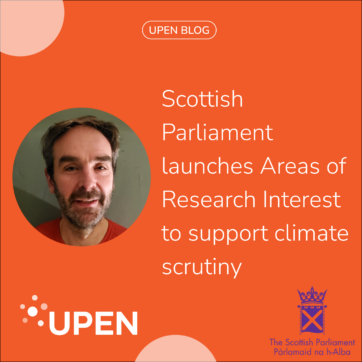As a country, we have set ourselves a high bar indeed to meet the Net Zero target by 2050. As a region, we, The Humber – and the University of Hull in particularly – have the opportunity to make real change for good, for our community, for the region, and for the country. But one thing is for sure, we all need to pull together if we are to win this race – and we all really want to.
“I can today announce that the UK Government has decided to become the world leader in low cost clean power generation – cheaper than coal and gas – and we believe that in 10 years’ time offshore wind will be powering every home in the country, with our target rising from 30 gigawatts to 40 gigawatts.”
So said Boris Johnson at the Conservative Party Conference at the beginning of last month. Stirring words from the Prime Minister and given the nightmare of the last ten months, we all want it to be true – whatever our political hue. We, in The Humber, believe that it can be true. At the University of Hull, through our collaborations in research, teaching and knowledge exchange we have been building the foundations for just such a green revolution.
With a dash of serendipity, prescience from some, scepticism from others and sheer hard work, the region’s fortunes are finally turning and, as of old, the change is coming from the sea. We have the world’s largest offshore wind farm just off our coast – Hornsea which already powers over a million homes and is five times bigger than the city of Hull. It will be soon double in size when Hornsea II is completed. We have two of the world’s largest renewable energy companies – Siemens Gamesa and Řrsted – located in Hull and Grimsby respectively. Add to that the fact that Yorkshire and the Humber has the largest concentration of energy intensive industries in the country and produces up to 25% of the UK’s energy – where else would one start a green industrial revolution but in The Humber.
At three years old this week, the University of Hull’s https://www.hull.ac.uk/work-with-us/research/institutes/energy-and-environment-institute
“>Energy & Environment Institute’s reputation is growing nationally and internationally and leading efforts to tackle global environmental resilience and energy sustainability. The Institute brings together leading interdisciplinary academics who are tackling the issues surrounding climate change. Solving clean energy requires bright minds – we have some of the leading researchers in energy and the environment and are already working hard at game changing innovation.
We have also been very successful in recent years in building regional capabilities to bring together the power of the University’s research capabilities with business. The Aura initiative – which is a collaborative partnership between academia, industry, local and regional government and other non-governmental organisations – is now the leading the Offshore Wind Sector Deal Cluster in the UK. The brand new Aura Innovation Centre, located in the heart of the Humber, is an asset for the region, and acts as a community of innovative thinkers, scientists, inventors, researchers and problem solvers – all working together for Clean Growth for the Humber and beyond.
Universities are very important organisations and contribute substantially to the regional economy (in terms jobs and purchasing and spending) – not only because they are training the leaders of the future, and because they are also generating knowledge and doing ground breaking research on the doorstep of these new renewable energy hubs.
A fundamental aspect of all our work, however, is the link to Government policy, at a national level and regionally. The publication of the Clean Growth Strategy (2017), the Industrial Strategy (2018) the Offshore Wind Sector Deal (2019) have all been key to our research, collaborations, and informs our innovation and knowledge exchange. The long awaited Energy White Paper, due to be published this Autumn, will further provide opportunities to build our knowledge exchange and will boost our ability to further shape how the nation plans to become a carbon-neutral economy by the middle of the century.
Professor Dan Parsons is Director of the Energy & Environment Institute and Louise Smith is Director of Aura, at the University of Hull.


